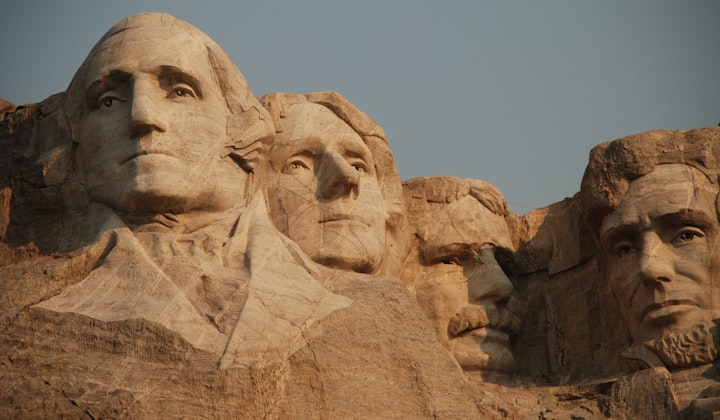Is history objective or subjective? the legends of history say so.
Some people think that history is objective, but legends have played a large role in history and so some believe it to be subjective.

History may or may not be written by the victors, but there's no denying that history is a representation of reality. A biased one, with all the benefits and flaws of any other representation. And reality is what we're here to discuss: is it possible for history to be objective?
We've always known that history and legend are frequently joined at the hip, but what happens when they take a full-fledged vacation together?
The answer is that history can't be objective. It's a matter of definition: the past happened, and we can't change it. Objective is defined as "not influenced by personal feelings or opinions". But having personal feelings or opinions about the past is inevitable; they're part of what makes us human.
History can be written objectively, but only if there are no human beings involved. And if that's the case, why bother writing it? The only thing we can write objectively about people is their physical characteristics (height and weight, for example), which doesn't tell us much about them as individuals.
The truth is that history is subjective because it deals with events that were experienced by human beings — who are themselves subjective creatures. I suppose we could say that history is written from an objective perspective, since it has no emotions or biases attached to it (we hope), but this would be a bit like saying that science fiction is written from a subjective perspective because its authors have imaginations.
What do we mean when we say "subjective"? We mean full of bias and emotion; based on feelings rather than facts; having no basis in reality; unreal; fanciful. Not scientific at all!
History, like legend, relies heavily on storytelling.
History is a subject that is both loved and hated. It can be boring, tedious, and long-winded. But at the same time it can be exciting, enjoyable, and fun. The thing that makes history so enjoyable is its relatability to the past; we study it because we want to learn from our mistakes and see how others have overcome their challenges.
History allows us to see how people lived their lives in the past and how they coped with certain situations that are not unlike our own today. When looking at history from an objective point of view, it is easy to fall into the trap of believing that all events happened exactly as they were recorded in books or on paper.
However, what most historians do not realize is that there are always elements of subjectivity when writing about history. For example, if you read about World War II in Germany's perspective versus America's perspective you will notice that there are many differences between the two accounts even though they both describe the same event (Harrison).
This shows how subjective history can be when written by different authors with different backgrounds and beliefs.
In the past, history was seen as a static profession that simply recounted events and chronicled them for those who followed.
History is a story of past events. The main purpose of history is to understand the past and learn from it. Although this may seem simple enough, there are many issues that arise when deciding how best to study history. The first issue is the issue of objectivity versus subjectivity in history.
Is history an objective study or a subjective one? Can it be both? This question has been debated since the beginning of time. In the past, historians were seen as chroniclers who simply wrote down what they saw without any interpretation or analysis. This was called "objective" history because it was supposed to be factual and unbiased.
The problem with this approach is that it has no meaning unless you know what it means for something to be objective or subjective in the first place! Also, if you don't know what your biases are then how can you avoid them? Nowadays historians recognize that even though we try our best not to let our own opinions color our work, no matter how hard we try there will always be aspects of our work that are influenced by who we are and where we come from (our own personal experiences).
History could no longer be considered objective.
History is often said to be objective, but it is not. History can never be objective because it is written by human beings, who are subjective beings. In fact, the legends of history say so. Even in ancient times, there were many historians who have tried to write history in an objective way because they believed that they could be objective about the past.
However, they all failed because they could not escape their own subjectivity. History could no longer be considered objective. It is a form of knowledge that reflects the subjective views and opinions of those who write it. This means that there are many different versions of history because people have different views on what happened at a certain time in the past and how it should be remembered today when writing their version of events.
When you read history books today, you will notice that they all have different perspectives on what happened in the past and how it should be remembered today when writing their version of events.
This means historians can be subjective in their interpretations.
Can history be objective? The legends of history say so. Historians can be subjective in their interpretations. History is a study of the past. It is a story told by the winners and written by the winners. It is also a narrative that can be told many different ways to make it seem more interesting or to have a greater impact on its audience.
The question then becomes, can historians be objective? History is subjective because it is written by people who have their own biases and opinions about what happened in the past. These biases may even cause them to write things that they don't actually believe happened but they do it because they think it will make them look better or give them more influence over future events.
There are also times when historians will deliberately leave things out of their histories that would make people think less of them or their ancestors if they knew about those things today. This can make history very difficult for people who want to know what really happened in the past because there are so many different versions of history available with each version having its own bias toward one group or another.
Sometimes an individual's personal interpretation of an event can become their truth, even if it did not historically happen that way.
The question of whether history is objective or subjective is one that has been debated for centuries. In the modern world there are many people who believe that history can be approached objectively, but this is not always the case. Sometimes an individual's personal interpretation of an event can become their truth, even if it did not historically happen that way.
This can be especially true when a person is trying to justify their own actions or beliefs. For example, if someone believes that they were right in doing something and they need to justify this to others, they might make up stories about how they were right and everyone else was wrong.
This can cause problems in trying to determine what really happened in history because people have their own interpretations of events based on their own beliefs and biases. Another problem with objectivity in history is that it is often difficult to prove whether or not something happened just by looking at the written word alone; there needs to be other evidence supporting what happened as well for it to be considered objective.
So, can you objectively tell history? the answer would seem to be a very big no.
The idea of history as objective is a myth. History is written by the victors, and the victors are always changing. History is written by the victors, but it is also written by the researchers. Who can objectively tell history? The answer would seem to be a very big no.
The idea of history as objective is a myth. History is written by the victors, and the victors are always changing. History is written by the victors, but it is also written by the researchers. Who can objectively tell history? The answer would seem to be a very big no.
So, can you objectively tell history? The answer would seem to be a very big no. So, can you objectively tell history? The answer would seem to be a very big no.
In conclusion
The truth is history is subject to the human bias and it's not objective unless we choose to believe it. It always comes down to who's telling the story, so whose version do you choose to believe? Do you pick a historian whose political views line up with your own or someone who is bringing a different perspective to the table?
If you take away anything from this article, remember that not everything in history is factual. Your perception of the past will determine how you interpret events and look at people throughout history.
About the Creator
Hector Allemand
📒 Passionate about writing! 😍 Fan of the history, outdoors, dogs, dancing and music. 🤔 life is too short to not write...






Comments
There are no comments for this story
Be the first to respond and start the conversation.